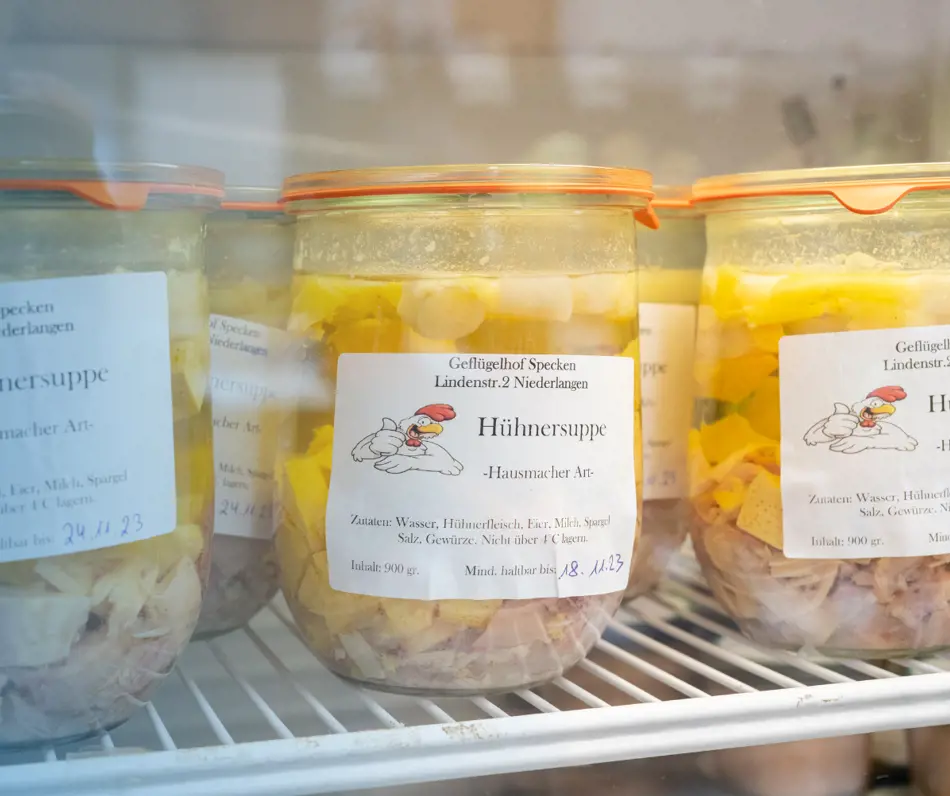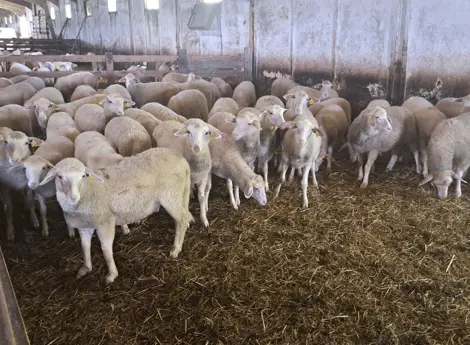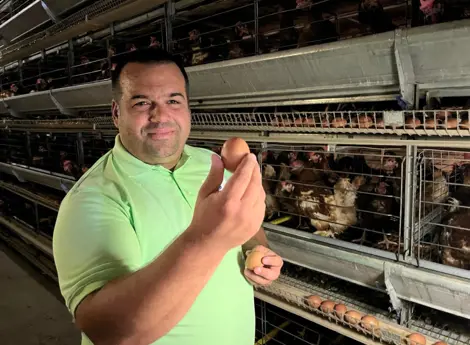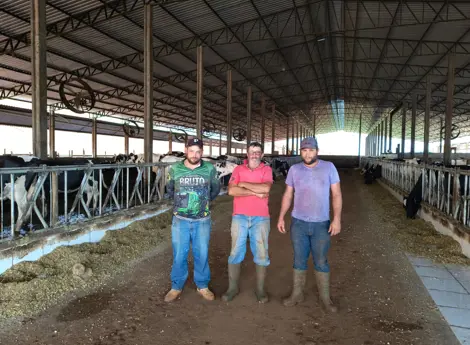German poultry family Specken - From wheat grain to chicken wings
Traditionally, the Specken family in the German town of Niederlangen operated a mixed farm with arable farming, pigs, cattle, and chickens. Over time, the business has evolved to specialize in meat poultry but remains versatile. The entire family works harmoniously in one sector, from wheat grain to chicken wings.
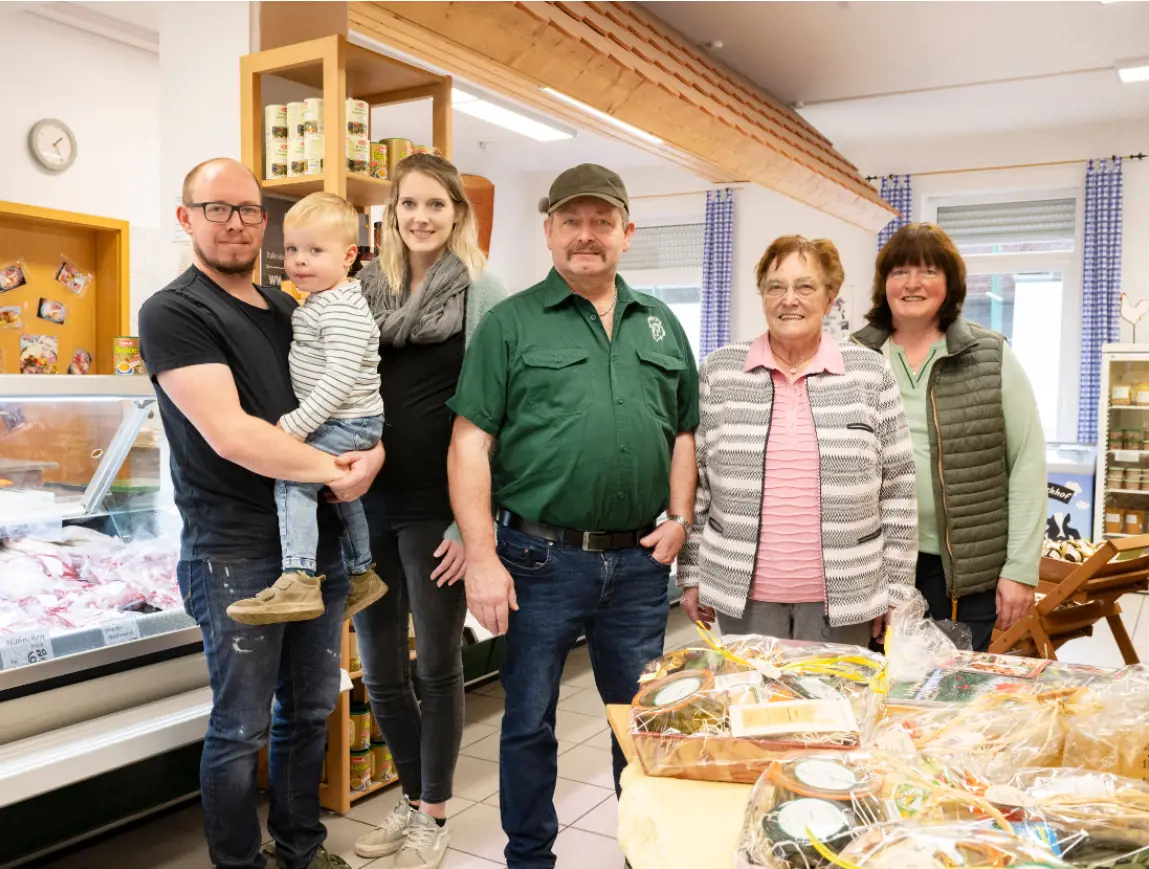
Four generations on one farm
They proudly share their story: four generations living and working together with great joy on their farm in Niederlangen. It includes great-grandmother Gesina, father Bernd, mother Mechthild, son Daniel, daughter-in-law Hannah, and grandson Fritz. The farm, with its large farmhouse, is located just across the German border near Emmen.
The farm originally started as a mixed operation with pigs, chickens, and cows. The family has now specialized in meat chickens. It is a substantial operation with a unique second branch—a private slaughterhouse.
Next to the farmhouse, there's a small, simple slaughterhouse where they process three times a week. Local customers can order meat directly from the farm. In collaboration with an arable farmer, the Specken family runs a farm shop in Haren.
The family works together with enthusiasm. Everyone, except grandson Fritz, helps with caring for the meat chickens, working in the slaughterhouse, and selling chicken products. Even Fritz's 84-year-old great-grandmother is actively involved every day, not out of necessity but because she cannot sit still.
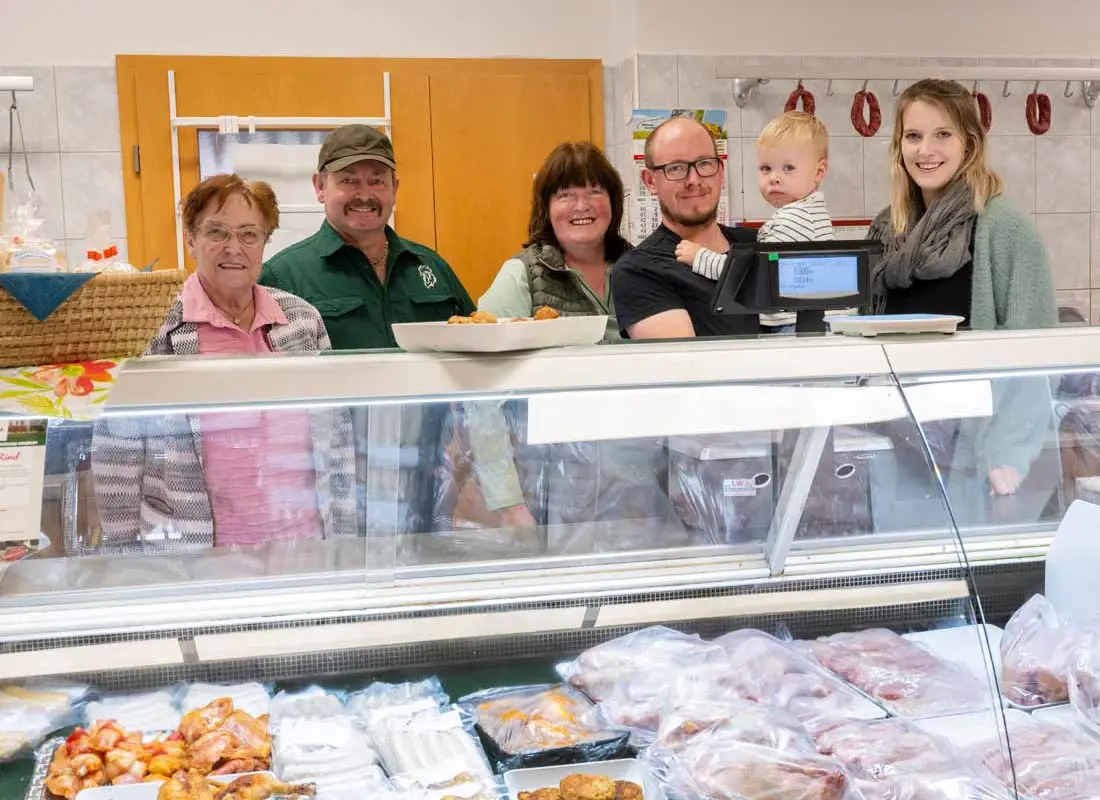
Four generations of Specken (from left to right): Gesina, Bernd, Mechthild, Daniel, Fritz, and Hannah in their farm shop where they sell their own chicken products.
Poultry slaughterhouse
In 1962, Friedrich and Gesina Specken moved into a brand-new peat-colonial farm. The peat colonies of Drenthe extend into Germany beyond the borders. The region around the village of Niederlangen continued peat extraction well after World War II. That's why the Specken family's farm, the villages, and other farms in the area date back to that time and are relatively new. Gesina Specken still resides on the farm, along with the three generations born or joined since then—her son Bernd, who married Mechthild, grandson Daniel and his wife Hannah, and great-grandchild Fritz.
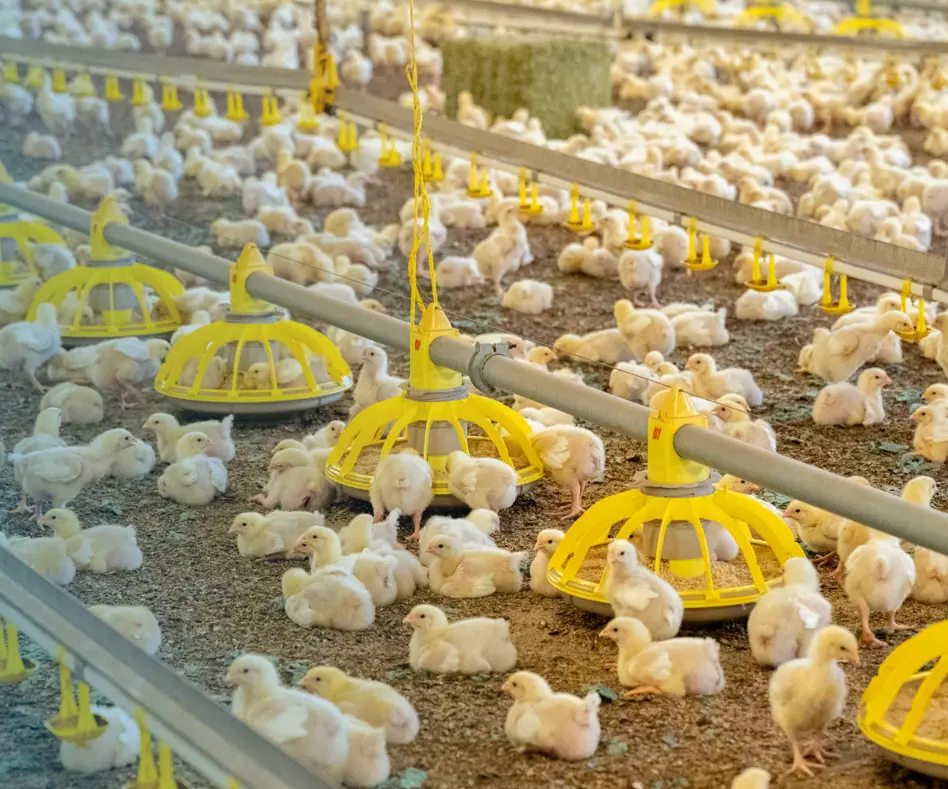
Specialized in meat chickens
Originally, the farm was a standard 1960s-style operation, covering 16 hectares with pigs, chickens, and cows. The Specken family expanded it into a specialized meat chicken farm with 148,000 animal places at two locations. The two newest barns were built in 2009, and the older ones were renovated and completely renewed in 2014.
Poultry slaughterhouse
After Bernd started working on the farm in the 1980s, another main activity alongside meat chickens emerged. "In 1992, I had a small slaughterhouse for meat chickens built on the property," he says. "I wanted to generate additional income in this way." Bernd is responsible for the slaughterhouse. "Currently, we slaughter three times a week to always offer fresh meat," he adds. "We process about 10,000 animals per year. We avoid larger quantities, as exceeding 10,000 categorizes us as an industrial business, which is not attractive for us."
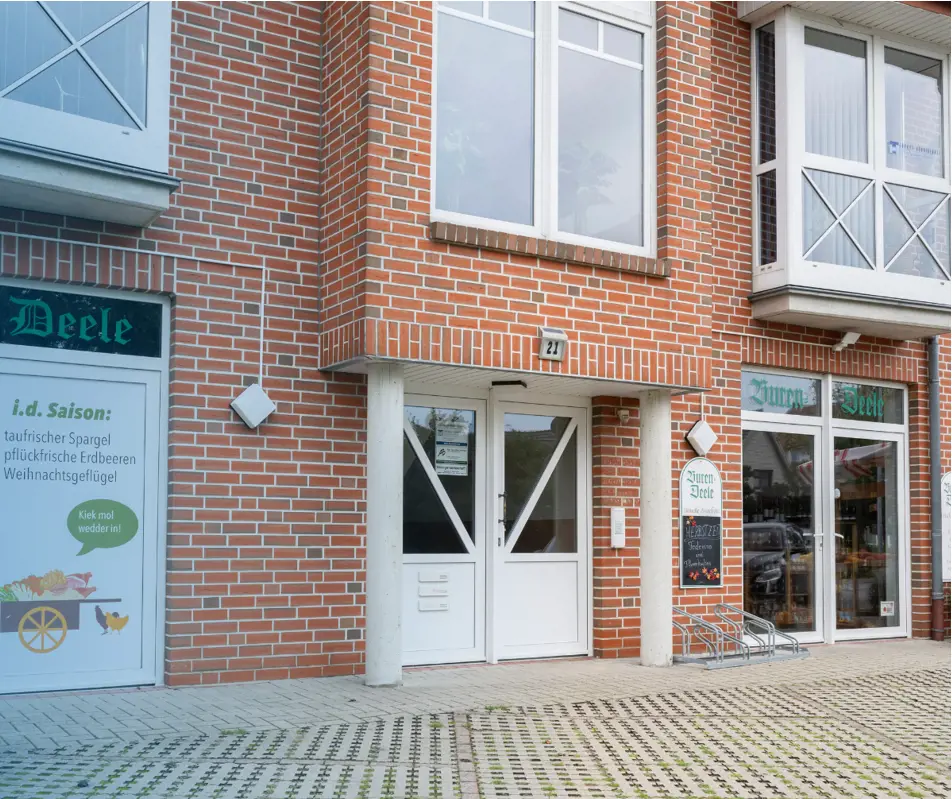
Sales
The meat from the slaughterhouse needed to be sold. "We started selling at a sort of farmers' market," Mechthild says, "but that cost each vendor money. That's why we partnered with the Schulte family. They have an arable farm where they grow potatoes, asparagus, and strawberries, among other things. This collaboration led to a farm shop in the nearby Haren, and we still have it." The farm shop sells meat and vegetables from their own and other farms. Additionally, poultry meat can be ordered and picked up at the farm. Even catering businesses are among the customers, and during the summer season, Specken offers barbecue products.
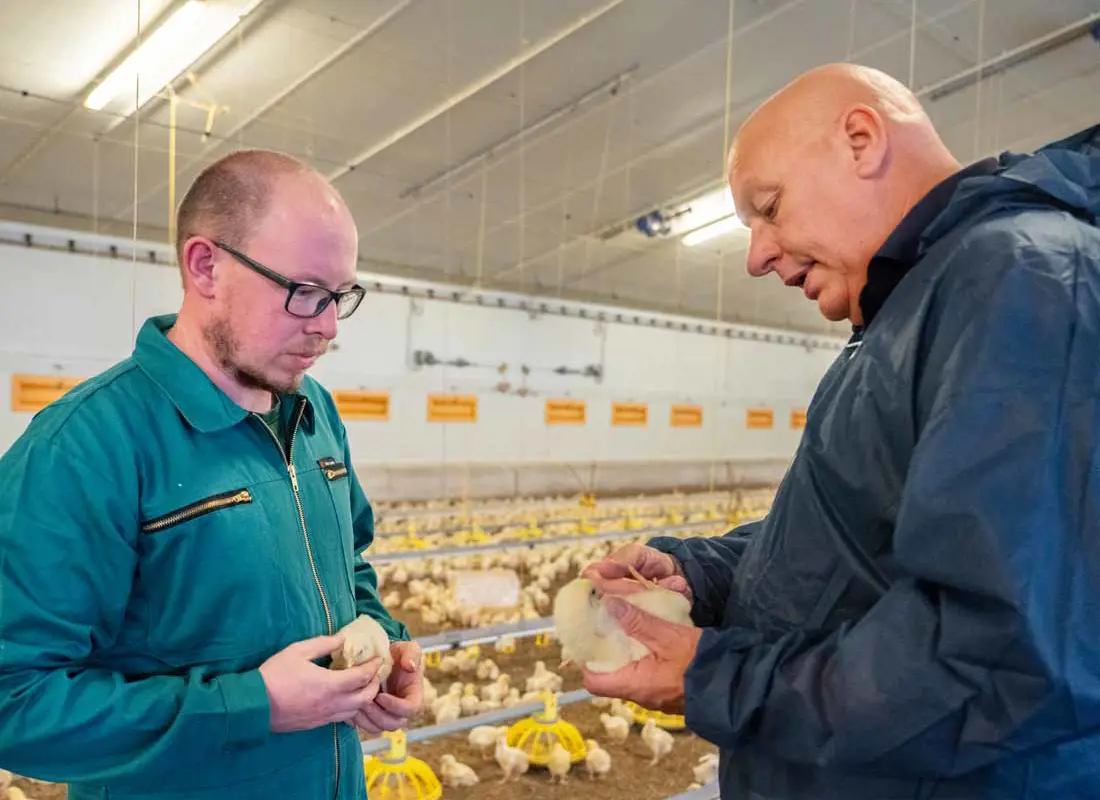
Daniel: "De Heus takes care of chick delivery, feed in the form of concentrate, wheat, and chick delivery to the slaughterhouse. I have one point of contact at the company, which is specialist Gerben Soppe (right)."
Collaboration with De Heus
The main branch of the business is meat chickens, overseen by Daniel. "I enjoy it," he says. "I like working with animals, and I enjoy trying various things to improve the results." He has a good partnership with De Heus. Daniel explains, "De Heus handles chick delivery, feed in the form of concentrate, wheat, and chick delivery to the slaughterhouse. I have one contact person at the company, specialist Gerben Soppe. Since they handle everything, there's only one party responsible. If a problem arises, De Heus finds the solution. I've had multiple suppliers and buyers in the past who tried to pass problems on to each other. The current setup is better. Uncomplicated."
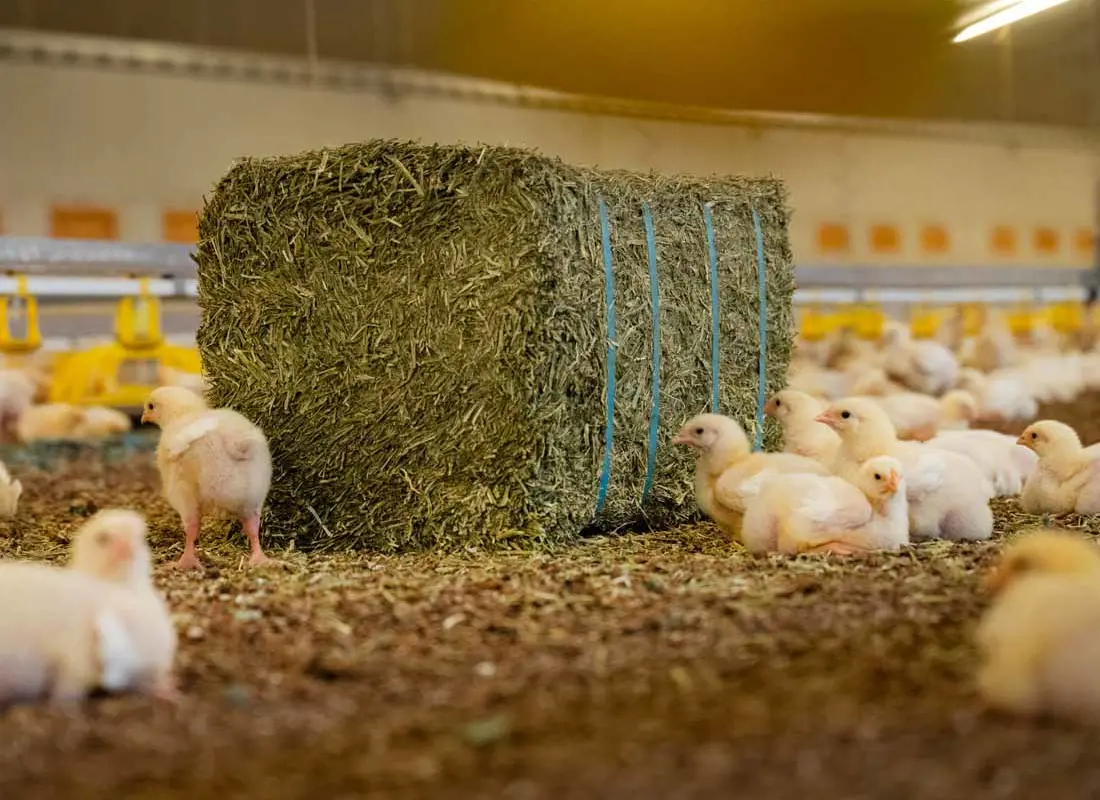
Daniel: "We work with the Enrichment concept from Plukon-McDonald's. By taking welfare measures in our barn, such as daylight, alfalfa bales, play and enrichment materials, we receive a higher price for our chicks."
Chick sales
The majority of the chicks are not slaughtered on-site but sold. Daniel has been working with the Plukon-McDonald's enrichment concept for a long time. "You receive a higher price because you take measures for their well-being. There must be daylight in the barn, we place alfalfa bales in the barn, and provide play and enrichment material."
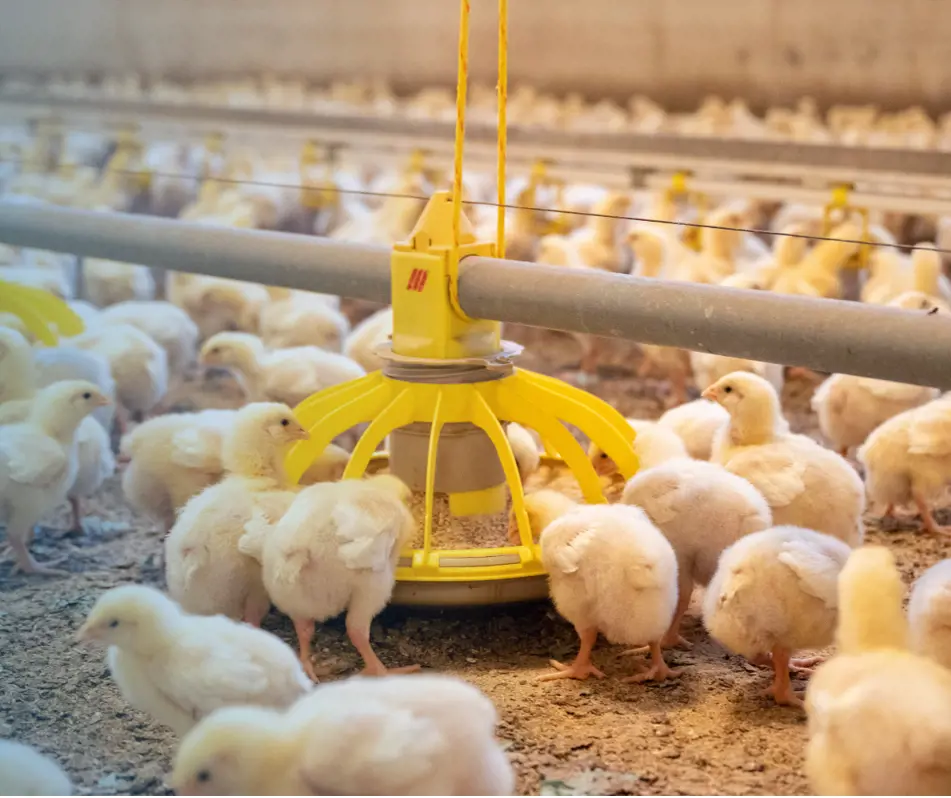
Working with healthy chicks
One of the things Daniel continuously works on, also due to the enrichment concept, is the health of the animals. Everything plays a role—chicks, climate, and feed. "It's going well," says Daniel. "I haven't had to give the animals medicine for years." According to Daniel, a significant advancement is the use of modern technology, especially for control. "I can see if something is wrong via the app on my phone. Before going to bed, I check how things are running on the farm. I particularly monitor feed and water. These are the main indicators of whether everything is going well. I noticed last Sunday that the motor of the feed system had broken down. It's challenging to find a mechanic on a Sunday. We had to fix the motor ourselves. You have no choice. Imagine trying to bring tons of feed into the barn without a feed machine."
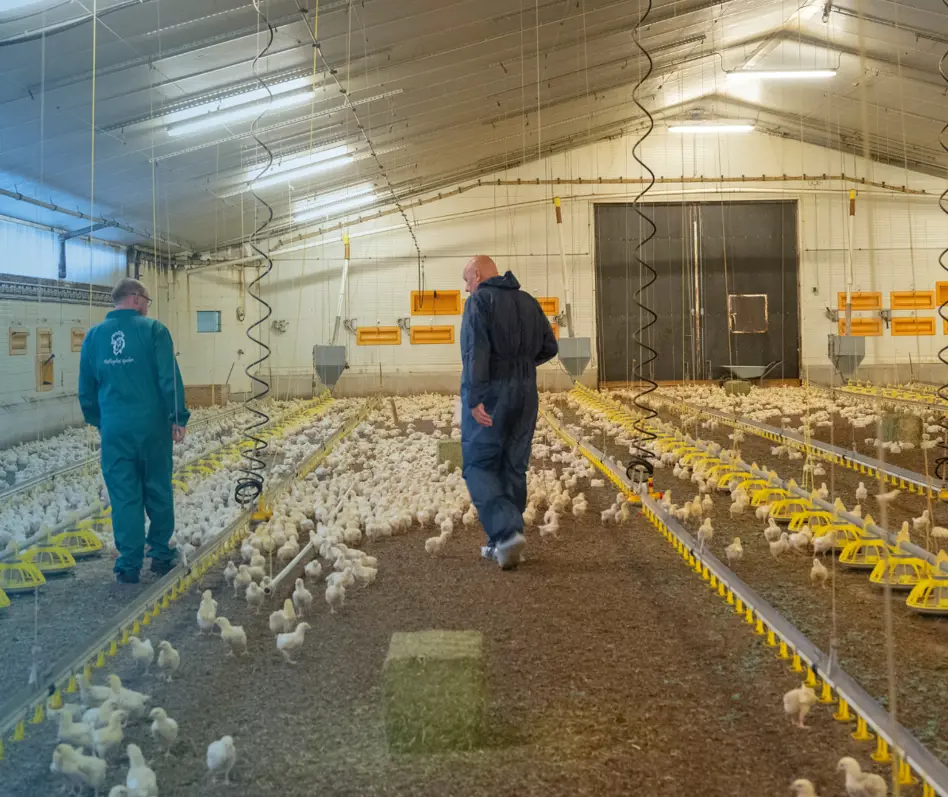
Sustainable energy
The family expects changes in the coming years. "Expanding the business is hardly possible," says Daniel. "The regulations here may be stricter than in the Netherlands. I also don't know how it will go with the slaughterhouse. It requires a lot of labor, and it's challenging to find good workers now. No, I think we are heading in a different direction. Becoming energy-neutral, something with solar panels and windmills. Many businesses are doing that, and I think it's also the future for us."
